In just a few hours’ time, another whirlwind year of politics will come to a close. It has been hectic, totemic and nothing short of chaotic.
Whether it is Sir Keir Starmer’s albeit unsurprising landslide victory or Kemi Badenoch’s election as Tory leader, political journalists have been handed ample opportunity to fill the front pages with the latest events in Westminster.
There have also been events from places far away from the corridors of power which have left a considerable mark on 2024, including a series of summer riots across England and farmers’ protests against Labour’s inheritance tax raid.
GB News has decided to make a list of the top 10 biggest political moments of 2024 – from Nigel Farage’s return from the political abyss to Donald Trump’s landslide victory on November 5.
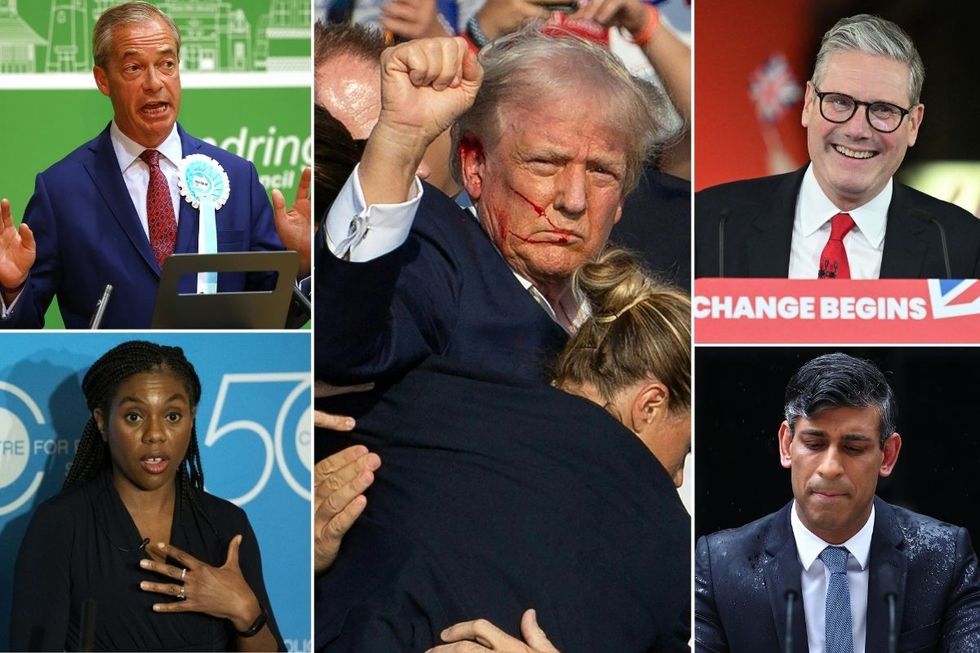
The top 10 biggest political moments of 2024 – from Farage’s return to Trump’s victory
PA/GETTY
10. Badenoch defeats Jenrick to succeed Sunak as Tory leader
Kemi Badenoch celebrates after being announced as the new Conservative Party leader
PA
The Tories, having already elected three female Prime Ministers, broke yet another glass ceiling following Kemi Badenoch’s victory over Robert Jenrick. Badenoch became the first black woman to lead a major political party in the UK after the no-nonsense North West Essex MP topped the fourth ballot of MPs by just one vote, later securing 56.5 per cent support from the Tory grassroots.
It was a hectic race to replace Rishi Sunak. Ex-Home Secretary James Cleverly stormed out of the blocks and was for some time regarded as the surprise front-runner. However, some Diane Abbott style political arithmetic ensured that Cleverly missed out on the run-off, later ruling himself out of serving in the Shadow Cabinet altogether.
It has been far from a glorious start for Badenoch. The Tory leader has seemingly struggled to get off the ground in her weekly jostles with Sir Keir Starmer at Prime Minister’s Questions. However, when it comes to electing female leaders, it’s four-nil over Labour for the Tories now.
9. Soaked Sunak goes early as Britons deliver damning verdict on Tories
Soaked Sunak goes early as Britons deliver damning verdict on Tories
PA
“Now is the moment for Britain to choose its future,” a soaked Rishi Sunak said as the rain hammered down outside No10. Unfortunately for the then-Prime Minister, the British people decided the future was not with him. In a moment that will likely raise questions such as, “Where’s Steve McLaren with an umbrella when you need one?” Sunak went on to lead a sluggish but admittedly impossible General Election campaign.
Haemorrghaging support to the left, right and centre, the Tories lost 251 seats after already suffering bruising by-election defeats in Wellingborough and Kingswood. There was a degree of inevitability about the manner of Sunak’s defeat. However, it ensured a double-whammy of Labour smashing through the Red Wall and a Liberal Democrat revival in the so-called Blue Wall.
Sunak was even accused of knowing nothing about politics after deciding to leave D-Day commemorations early. The then-Prime Minister was ridiculed for his decision, with Nigel Farage even claiming that Sunak “doesn’t understand our culture”.
But the writing was already on the wall. The General Election betting scandal ultimately echoed genuine grievances about the sleaze-stricken Tories. Sunak’s parliamentary private secretary Craig Williams was stung for placing a £100 bet on the date that polls opened. Unsurprisingly, Montgomeryshire & Glyndwr dealt Williams a bloody nose, leaving him behind Labour and Reform UK with a 35.6 per cent slump in support.
8. Pro-Gaza MPs topple Labour bigwigs as Starmer faces threat from Left
Jeremy Corbyn
GETTY
Despite securing a landslide majority, pro-Gaza MPs made shock inroads in the 2024 General Election. After being involved in a massive row with his successor as Labour leader, Jeremy Corbyn defied all odds to return as the MP for Islington North as an Independent.
Corbyn was joined by four other Independent MPs, with pro-Gaza candidates sending shivers down Labour spines. Shockat Adam pulled off the most surprising victory by defeating ex-Shadow Health Secretary Jonathan Ashworth in Leicester South. Blackburn’s Adnan Hussain, Dewsbury & Batley’s Iqbal Mohamed, and Birmingham Perry Barr’s Ayoub Khan completed the list of pro-Gaza newbies.
The group could soon formally create a new political party, having joined forces as the Independent Alliance in September. Despite voicing opposition to Starmer’s stance on Gaza, Mohamed caused the largest stir after appearing to condone first-cousin marriage in the House of Commons.
However, the threat from the Left is not just reserved for Independent pro-Gaza MPs. The Green Party pulled off its best electoral performance on July 4, returning four MPs to the House of Commons. Sian Berry, Adrian Ramsey, Carla Denyer and Ellie Chowns make up the Green quartet in Westminster. However, Denyer’s victory highlights the threat the Green Party poses to Labour going forward.
Denyer, who is co-leader of the Green Party, won Bristol Central with an enormous swing of 28.2 per cent. The Green’s South West victory ensured then-Shadow Culture Secretary Thangam Debbonaire joined Ashworth among the Labour bigwigs ousted from the House of Commons. However, all was not lost for Debonnaire as Starmer decided to reward her for her defeat by elevating her to the House of Lords.
And there have been moments where the main threat from the Left have been from within the Labour Party. Diane Abbott, who underwent a hectic selection process as the candidate for Hackney North & Stoke Newington, continues to swipe at the Prime Minister. And Starmer also stripped the whip from seven MPs who rebelled by voting in favour of an SNP amendment over the two-child benefit cap. The rebels included a number of high-profile Corbynistas, including former Shadow Chancellor John McDonnell and ex-Shadow Education Secretary Rebecca Long-Bailey.
7. Farmers’ protests grip London as PM refuses to budge on tax raid despite Labour ‘hypocrisy’
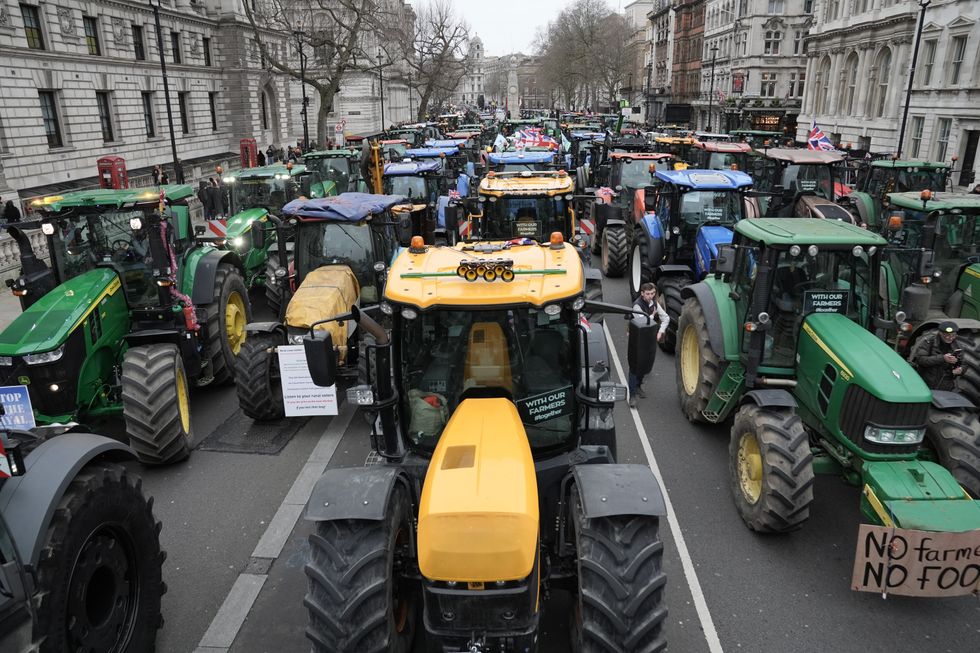
Protests against Rachel Reeves’s so-called “tractor tax” first gripped Westminster on November 19, with thousands of farmers descending on Whitehall in opposition to the “destructive” levy raid.
Reeves’s policy will force estates worth over £1million to cough up 20 per cent in inheritance tax. There has been considerable debate about the scale of the impact. The National Farmers’ Union rejected the Treasury’s claim that 72 per cent of farms won’t pay the tax.
It instead argued that cash-poor, medium-sized family farms will take the hit, roughly impacting around 66 per cent of British farms. Following the initial set of protests, demonstrations were held in Dover and Holyhead Port on November 27. A Scottish gathering was held the following day outside Holyrood, with Devon farmers descending on Bigbury Beach on November 30.
Taking the protest to other corners of the country, farmers headed to pork pie land by holding a demonstration in Melton Mowbray on December 9. Just two days later, farmers returned to Whitehall under the banner “RIP British Farming”.
And farmers’ protests look set to continue into the New Year. A wave of protests will target Labour-held rural seats after several new MPs expressed concerns about the inheritance tax raid.
Photographs and videos from the farmers’ protests painted a stark image for Starmer’s Government. It remains particularly damaging for Labour given Starmer was swept into Downing Street after winning at least 81 heavily-rural seats.
6. PM launches crackdown as thousands arrested after ‘horrific’ summer riots
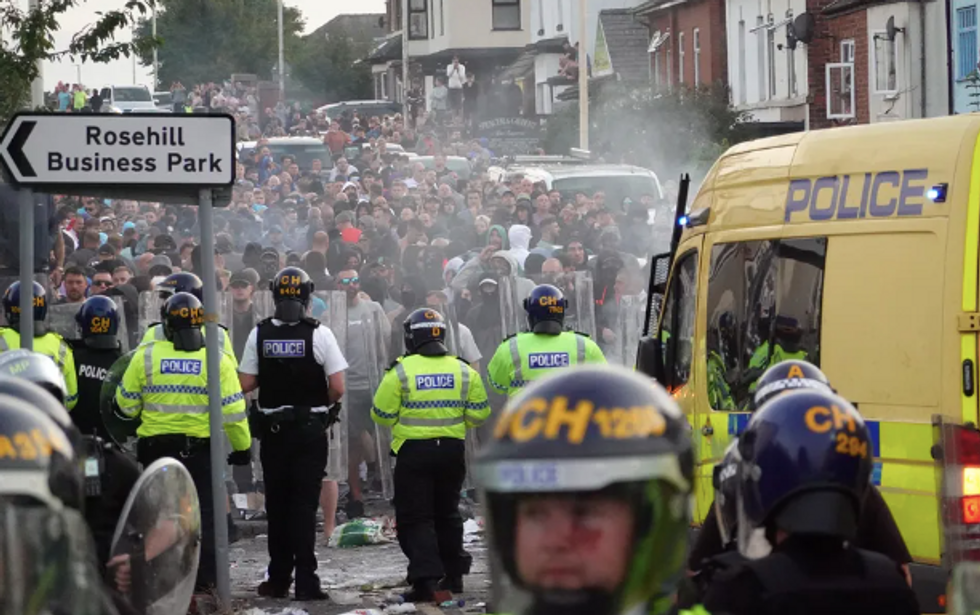
It took just over three weeks for Sir Keir Starmer to face his first tough task as Prime Minister. After riots sprung up across England, Starmer intervened to crackdown on anti-immigration protests. The Prime Minister, who has since become known for his globe-trotting, even cancelled a family holiday to deal with the crisis.
“I utterly condemn the far-right thuggery we have seen,” the emboldened Prime Minister said. “Be in no doubt: those who have participated will face the full force of the law.” More than 1,200 people were arrested for their involvement in the riots, with more than 400 sentences being dished out throughout the tail-end of the year.
Keith Edwards, 81, was the oldest man sentenced and a 12-year-old boy was the youngest after being found guilty of throwing stones at a mosque in Southport. Levi Fishlock, 31, and Thomas Birley, 27, were handed the longest sentences, with the pair jailed for nine years.
Although pollsters claimed that the Prime Minister’s response was well-received from the wider-electorate, Starmer faced pressure from Nigel Farage to recall Parliament. The Reform UK leader decided to condemn the “appalling violence” but also demanded an “honest debate” about immigration.
He added: “Ever since the soft policing of the Black Lives Matter protests, the impression of two-tier policing has become widespread. The Prime Minister’s faltering attempts to address the current crisis have only added to that sense of injustice.”
Robert Jenrick, who was then running against Kemi Badenoch for Tory leader, also piled in on the Prime Minister. He said: “I have been very critical of police in the past, particularly around the attitude of some police forces to the protests we saw since October 7.
“I thought it was quite wrong that somebody could shout Allahu Akbar on the streets of London and not be immediately arrested, project genocidal chants on to Big Ben and not be immediately arrested. That attitude is wrong and I’ll always call out the police for it.”
5. Labour loses its way as 3 million sign petition demanding General Election after tax-raiding Reeves takes axe to Winter Fuel Payments
Labour loses its way as 3 million sign petition demanding General Election after tax-raiding Reeves takes axe to Winter Fuel Payments
PA/PETITIONS
The tide started to turn against Labour after one major policy decision. Forget crony claims about Lord Alli’s wadrobe-filling donations, questions about Rachel Reeves’s CV or Sue Gray’s No10 spat with Morgan McSweeney, axing Winter Fuel Payments sent the dial spinning.
Starmer was dealt a major blow at Labour conference when the jet-setting Prime Minister was informed delegates voted to maintain the £300 pensioner perk. However, Labour instead opted to push ahead with cutting Winter Fuel Payments for around 10 million pensioners.
The decision ensured the Prime Minister would face festive fury, with Sir Starmer and the Granny Harmers releasing Freezing This Christmas earlier this month. A series of other fiscal measures also proved to infuriate the public.
Reeves’s £40billion tax-hiking Budget included an increase to National Insurance Contributions, an inheritance tax raid on farmers and rise to the bus fare cap. Ultimately, Reeves’s Budget opened up Labour to accusations of introducing manifesto-busting measures.
Fury from the public has not translated in any real electoral catastrophes, given the proximity to the last poll, by-elections remain only distant possibilities. However, a petition set up by landlord Michael Westwood recently surpassed three million signatures.
The Prime Minister faces a potentially humiliating Westminster Hall debate on the petition on January 6. However, given Labour returned 411 MPs on July 4, the chances of Starmer being forced to hold another General Election remain somewhere between slim and none.
4. Starmer secures landslide but 34 per cent support leaves Labour vulnerable
Sir Keir Starmer celebrating victory after the 2024 General Election
PA
Despite suffering a number of political setbacks since entering No10, Sir Keir Starmer’s landslide victory remains one of the biggest moments of 2024. Although victory seemed almost inevitable, Labour returned a staggering 411 MPs with just 34 per cent of the vote.
Starmer’s victory is comparable to Tony Blair’s in 1997 when New Labour returned 418 MPs with a much larger 43 per cent of the vote. The result on July 4 marked a remarkable turnaround for Labour following the 2019 General Election and subsequent period of Tory ascendancy in 2021.
Receiving the support of 10 per cent of 2019 Tory voters helped propel Starmer to Downing Street, with 19 per cent of 2016 Brexit-backers also siding with Labour. Labour increased its number of seats by 211 despite attracting just 1.6 per cent more votes compared to 2019.
The figure also masks the drop in raw votes. Given turnout dropped to its lowest point since 2001, it will come as no surprise to know that Jeremy Corbyn received 10.3 million votes in 2019, with Starmer amassing just 9.7 million.
No fewer than 113 of all seats were also won by a razor-thin five per cent, with Hendon voting for Labour by just 15 votes. Starmer also picked up Poole and North West Cambridgeshire by 18 and 39 votes respectively.
Speaking after his totemic victory, Starmer said: “There’s nothing preordained in politics. Election victories don’t fall from the sky. They’re hard won and hard fought for and this one could only be won by a changed Labour Party. We have the chance to repair our public services because we changed the party. We have the chance to make work pay because we changed the party.
“We have the chance to deliver for working people, young people, vulnerable people, the poorest in society because we changed the party. Country first, party second isn’t a slogan. It’s the guiding principle of everything we’ve done and must keep on doing.”
3. Trump survives assassination attempt before Biden drops out
Donald Trump survived an assassination attempt in Butler
GETTY
“I’m not supposed to be here tonight,” Donald Trump said at this year’s Republican National Convention. The 45th President, who was pulling ahead of gaffe-prone Joe Biden in the opinion polls, spoke just days after surviving the most shocking assassination attempt since Ronald Reagan’s in 1981.
Blood streamed from Trump’s ear in Butler, Pennsylvania, on July 13, after Thomas Matthew Crooks took aim from the rooftop just 150 yards away from the 45th President. Within seconds of Trump’s ear being struck, Secret Service counter-snipers killed Crooks.
The 78-year-old defiantly lifted his fist aloft before shouting “fight, fight, fight” in an image likely to live long in the memory from 2024. Rally attendee Corey Comperatore was tragically killed during the attack, with two other Trump supporters sustaining injuries.
Numerous commentators believed the assassination attempt made the 2024 US Presidential Election a slam dunk for Trump, with HarrisX handing the 78-year-old a six-point lead over his White House successor Joe Biden. However, Biden’s blunderous first debate against Trump had already prompted calls for him to quit.
Democrats were now seriously plotting to remove Biden from the race, fearing Trump would secure an emphatic return to the White House. Biden announced his withdrawal from the 2024 race on July 21.
Momentum appeared to be building behind Kamala Harris’s candidacy after she was anointed as Biden’s successor as the Democratic Party’s nominee. Harris was left chuckling during her own debate with Trump after the 45th President made unfounded claims about Haitian migrants eating dogs and cats in Springfield, Ohio.
However, despite facing another assassination attempt at Trump International Golf Club in September, the 78-year-old returned to the campaign trail with a renewed sense of both zeal and determination. What came next will go down in the history books forever.
2. Farage’s launches Clacton comeback as Reform UK ‘revolt’ continues under Yusuf’s stewardship
Nigel Farage celebrating victory in Clacton
PA
“What I am really calling for and what I intend to lead is a political revolt,” Nigel Farage declared after announcing his candidacy in the 2024 General Election. After previously ruling himself out of an eighth bite at the cherry, the Brexit stalwart announced his intention to run in Clacton. Clacton, which returned Ukip’s Douglas Carswell in 2014 and 2015, elected Farage with a staggering majority of 8,405.
However, Farage’s return to the political frontline altered Reform UK’s trajectory altogether. Ahead of his return as leader, Reform UK languished behind in by-election bouts and appeared unlikely to return a single MP to the House of Commons. Savanta put the populist party on just nine per cent ahead of his announcement.
After receiving 14.4 per cent of the vote, Reform UK returned five MPs – including Lee Anderson, Richard Tice, Rupert Lowe and James McMurdock – to the House of Commons. The populist party also dealt a hammer blow to Rishi Sunak, with Reform UK estimated to have cost the Tories an additional 80 seats.
“I think what Reform UK has achieved, in those just few short weeks, is truly extraordinary,” Farage said following his victory in Essex. However, the Brexit stalwart is now setting his sights on entering No10 in 2029.
Reform UK enlisted Zia Yusuf as its chairman to professionalise the populist party. Yusuf has overseen the creation of hundreds of branches, ensured Reform UK’s membership base has now surpassed that of the Tories and secured a number of high-profile defections.
Next year could prove decisive for Farage’s future, with the 2025 Local Elections providing an astonishing opportunity for Reform UK to break the political system yet again. However, Farage and Yusuf have already voiced concerns about key battlegrounds, including Thurrock and Essex, axing elections as part of Labour’s local authority shake-up.
And the Reform UK leader couldn’t help but take a swipe at Starmer in his first ever question to the Prime Minister. In his PMQs appearance on September 11, Farage said: “Yesterday, we witnessed some extraordinary celebratory scenes outside Britain’s prisons, where in some cases serious career criminals were released.
“That was to make way for—yes—rioters, but equally those who have said unpleasant things on Facebook and elsewhere on social media. Does the Prime Minister understand that there is a growing feeling of anger in this country that we are living through two-tier policing and a two-tier justice system?”
1. Trump makes history with thumping victory over Harris as red wave shocks Washington
Donald Trump walks out on stage with his wife Melania after being declared the winner during an election night watch party at the Palm Beach County Convention Center
GETTY
For those of you who went to bed before polls closed in America on November 5, the next few hours were perhaps the most surreal in my lifetime. Despite trailing Kamala Harris in most opinion polls, Donald Trump pulled off a remarkably emphatic victory to seal his return to the White House.
It even appeared that the 45th President, who will soon become the 47th President, couldn’t believe it either. Speaking to supporters in Florida, a victorious Trump said: “We overcame obstacles that nobody thought possible and it is now clear that we’ve achieved the most incredible political thing, look what happened, is this crazy?”
Trump became the first Republican since 1988 to win the popular vote, sweeping the Senate and House on his path back to the White House. The 78-year-old also pulled off the historic feat of joining just Grover Cleveland as the only Commanders-in-Chief to serve two non-consecutive terms in the Oval Office.
However, the real reason why Trump’s victory was so astonishing was because of the events impacting his campaign in the months before polls opened. Following the January 6 insurrection in 2021, Trump faced a litany of charges, ranging from allegedly paying hush money to adult actress Stormy Daniels to taking classified documents to his Mar-a-Lago home.
Trump was even forced to pose for a mugshot in Florida after being accused of criminally conspiring to overturn his very narrow defeat in the state of Georgia in the 2020 election.
But the legal blows, which even included being convicted on 34 counts in New York for falsifying business documents, couldn’t derail the firebrand Republican. Even as blood-streamed from his ear following the Butler assassination attempt, Trump remained defiant.
Trump’s victory will also have profound ramifications for the “special relationship”. Sir Keir Starmer has come under fire for picking “moron” Lord Peter Mandelson as the UK’s next US Ambassador. Senior Labour MPs, including Foreign Secretary David Lammy, have been slammed for making a series of disparaging comments about the incoming President.
And Labour infuriated the Trump campaign so much that a complaint was filed to the Federal Election Commission after Southside staffers were flown out to key swing states to campaign for Harris. However, there was one British politician who remained on top terms with Trump. Nigel Farage, “Mr Brexit” himself, was in Florida to celebrate Trump’s victory and has even offered to take on a “interlocutor” role to smooth over UK-US relations.


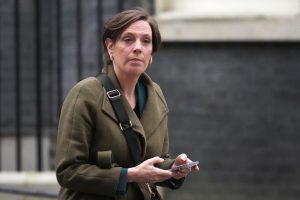
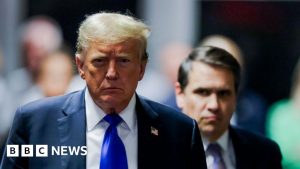




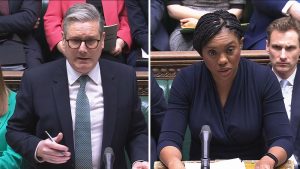



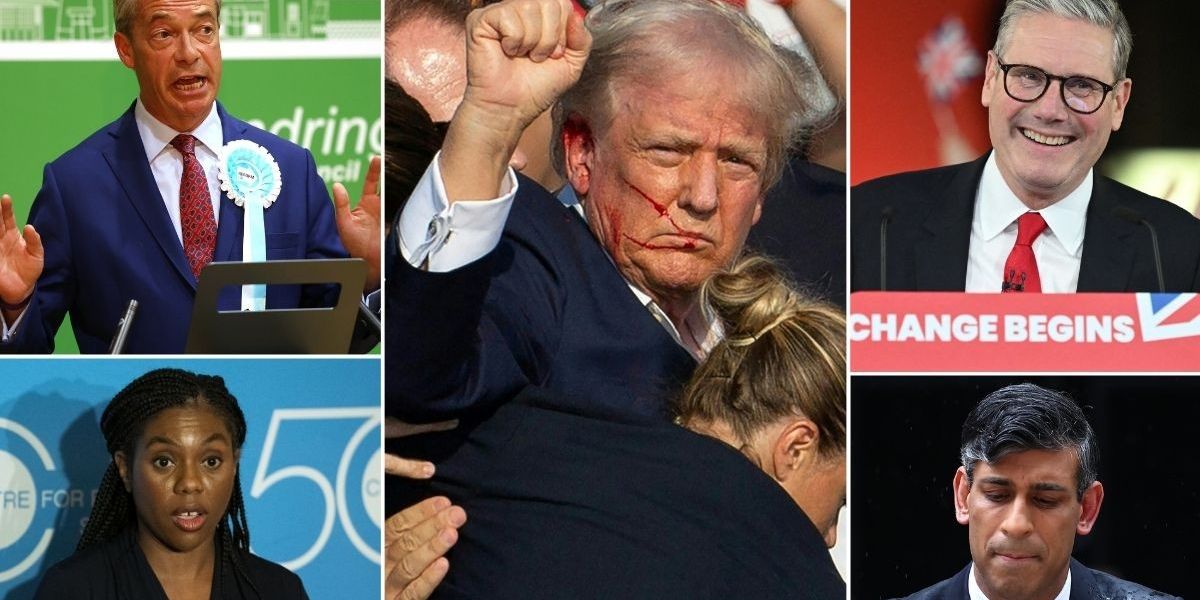
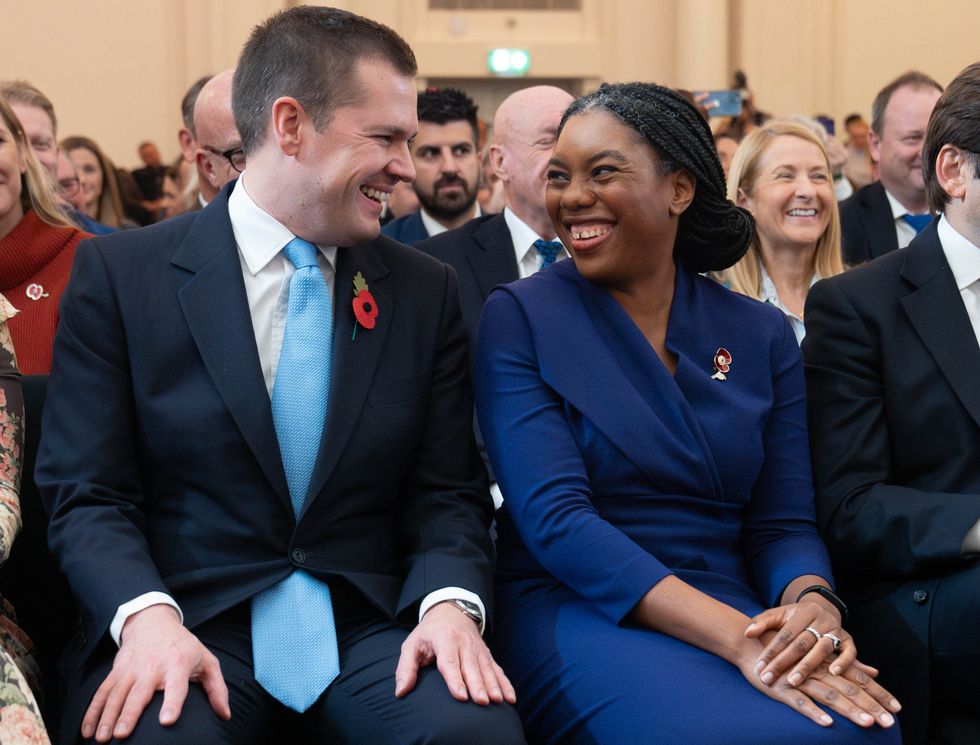
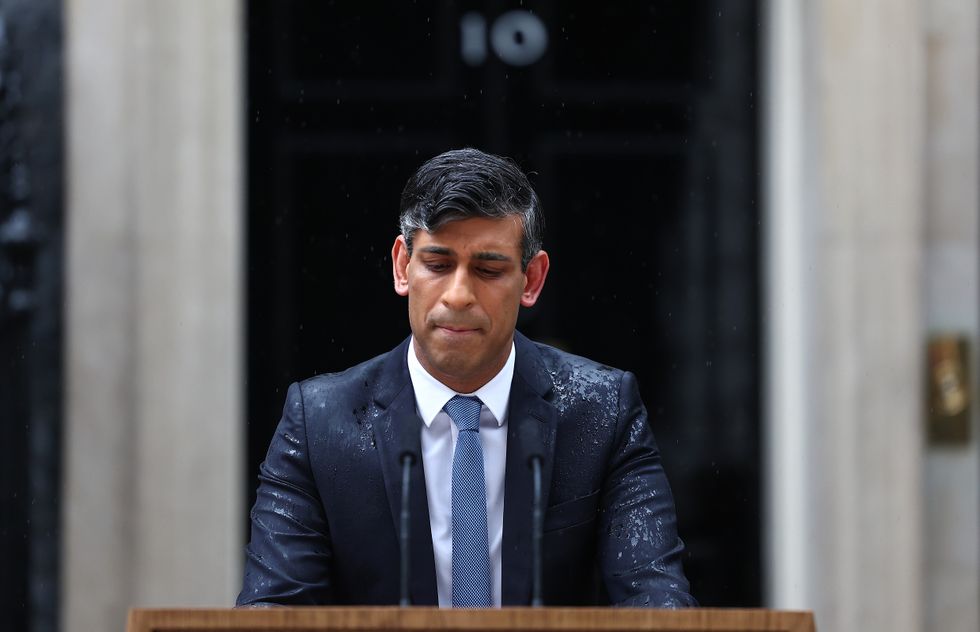
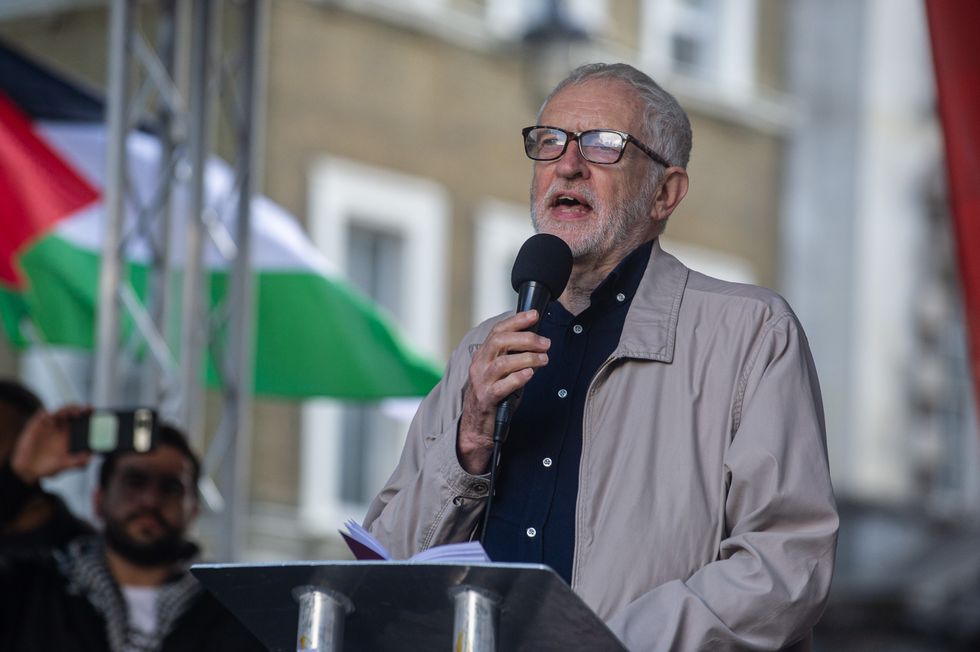
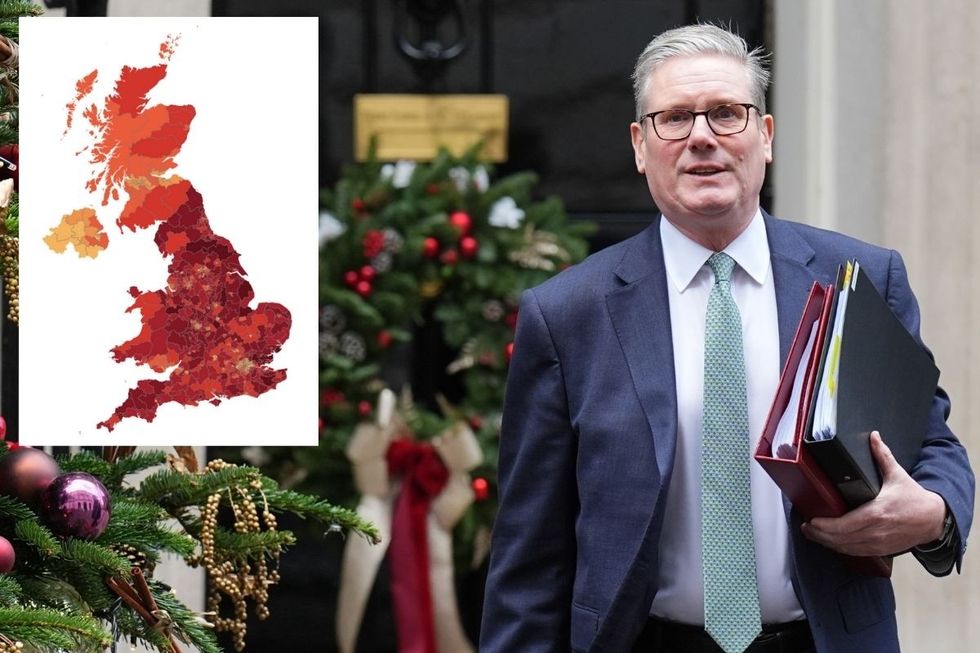
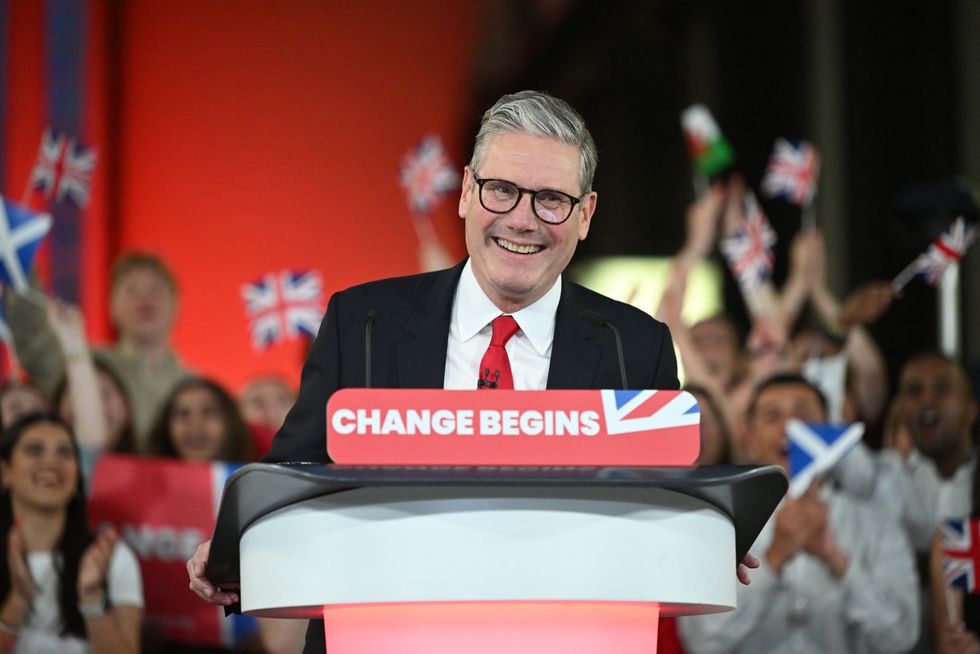
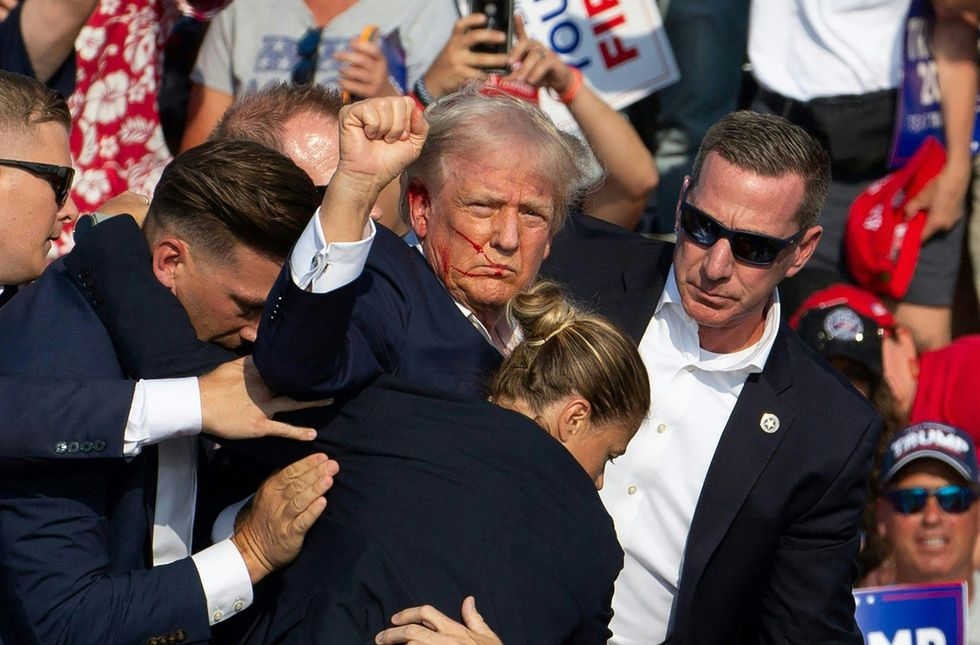
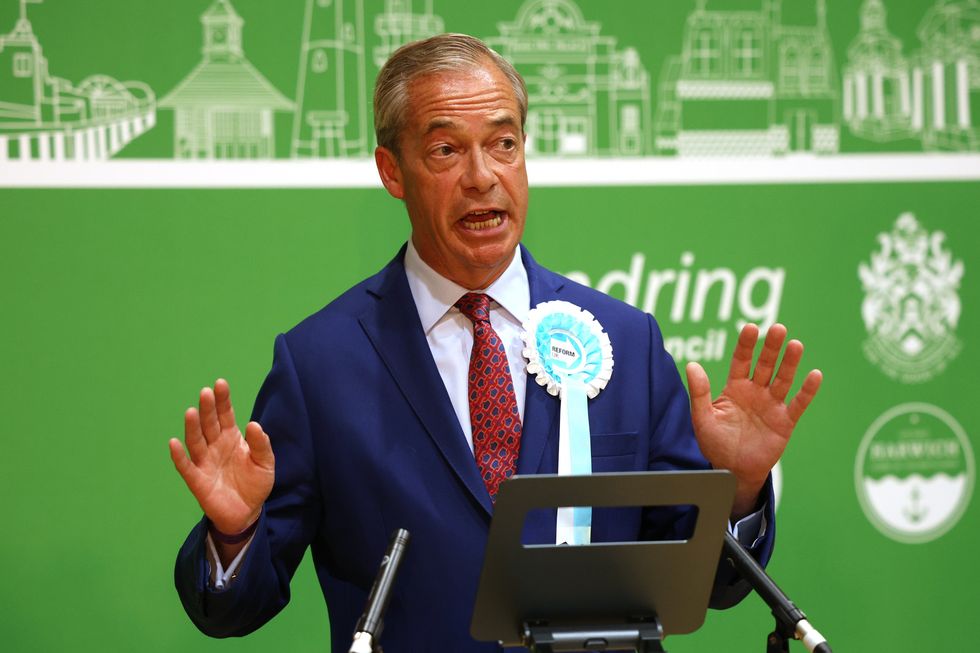
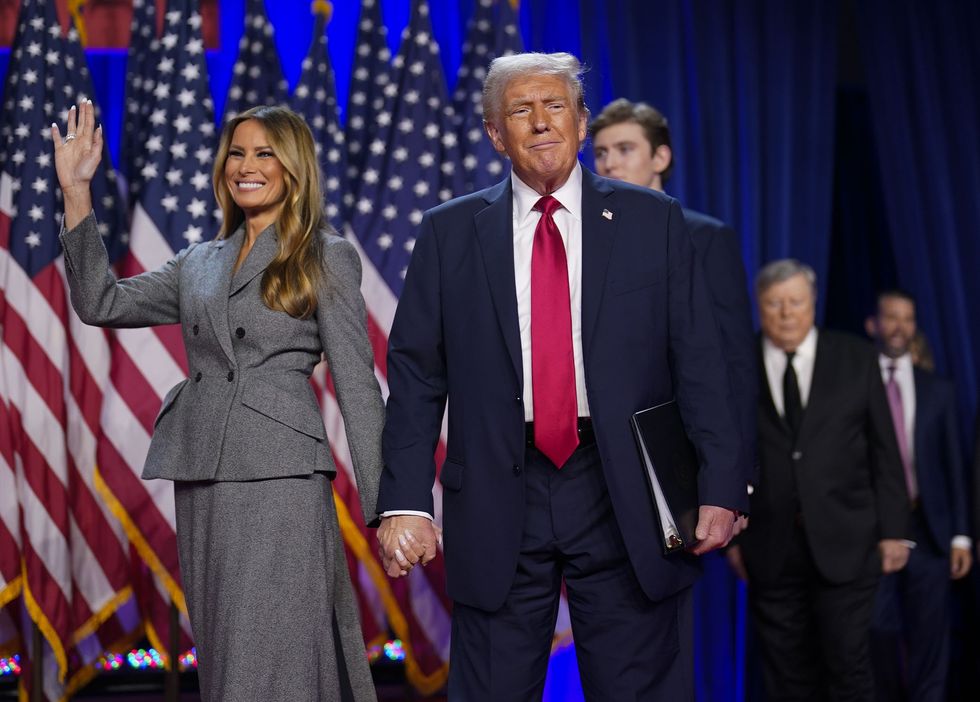
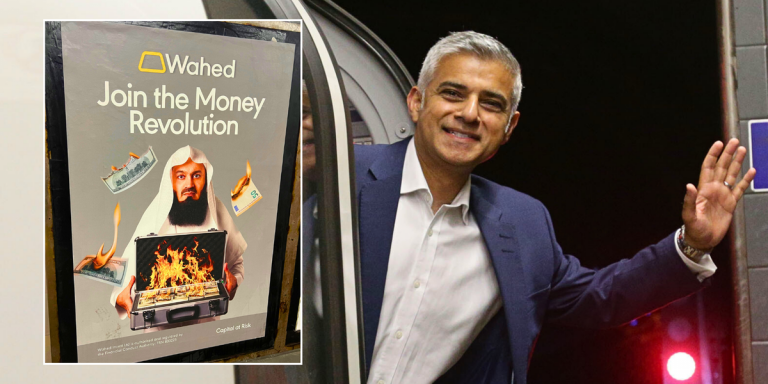
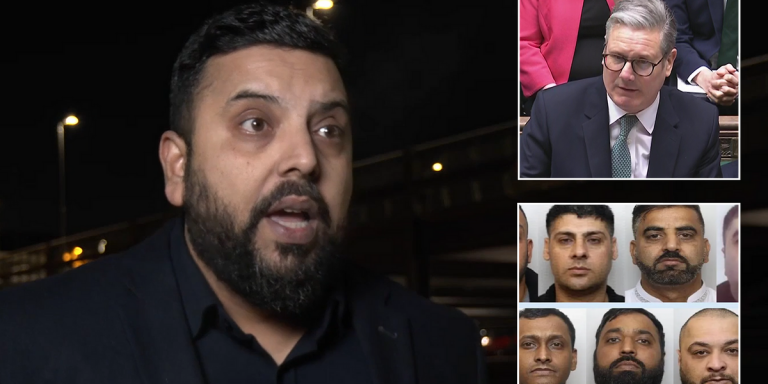
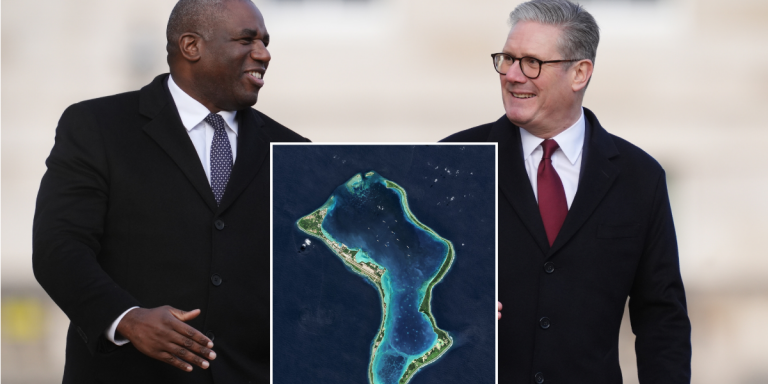
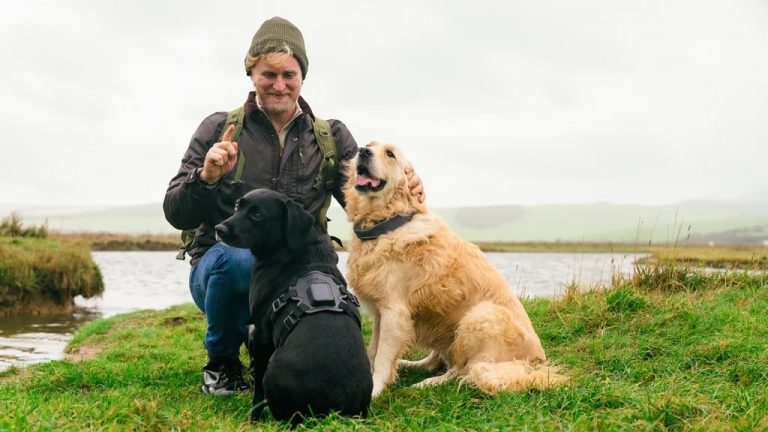

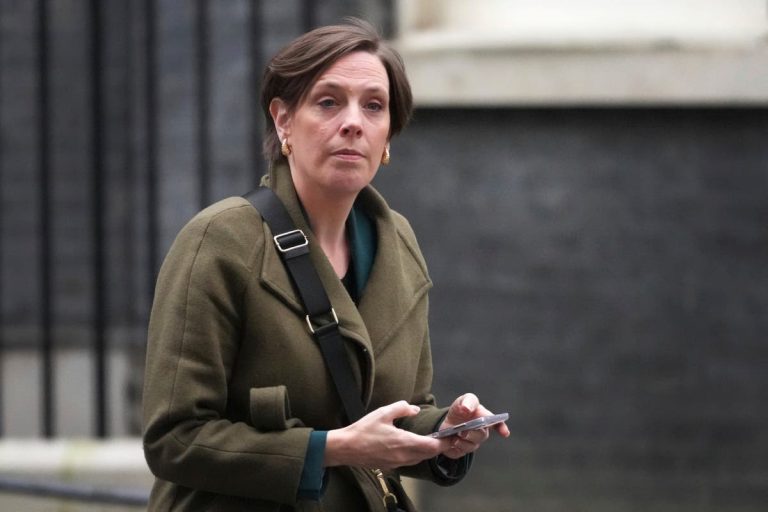


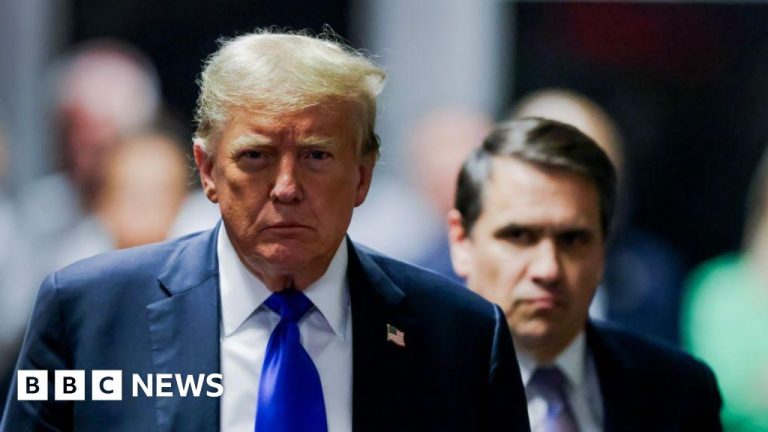
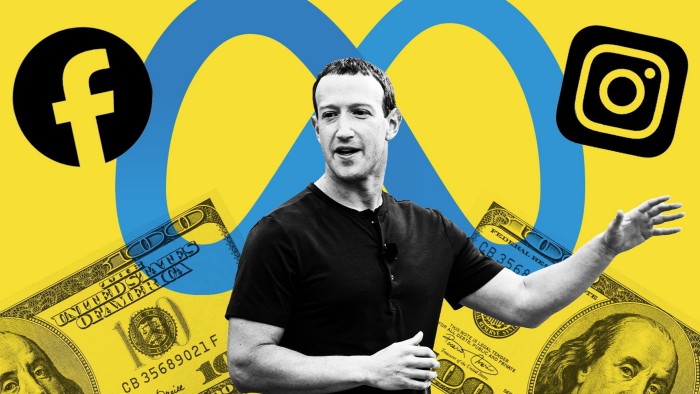



+ There are no comments
Add yours